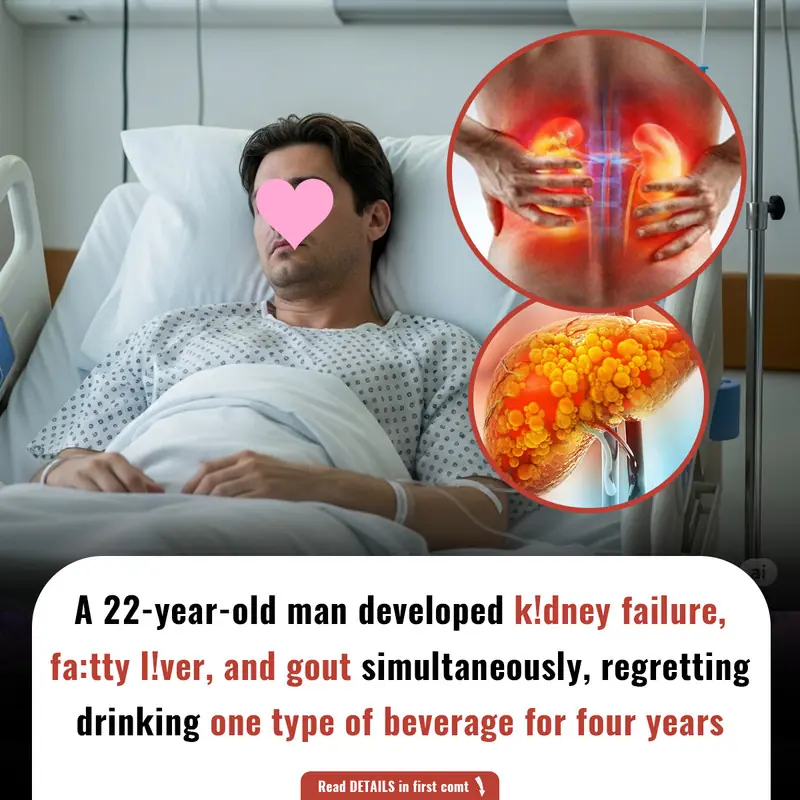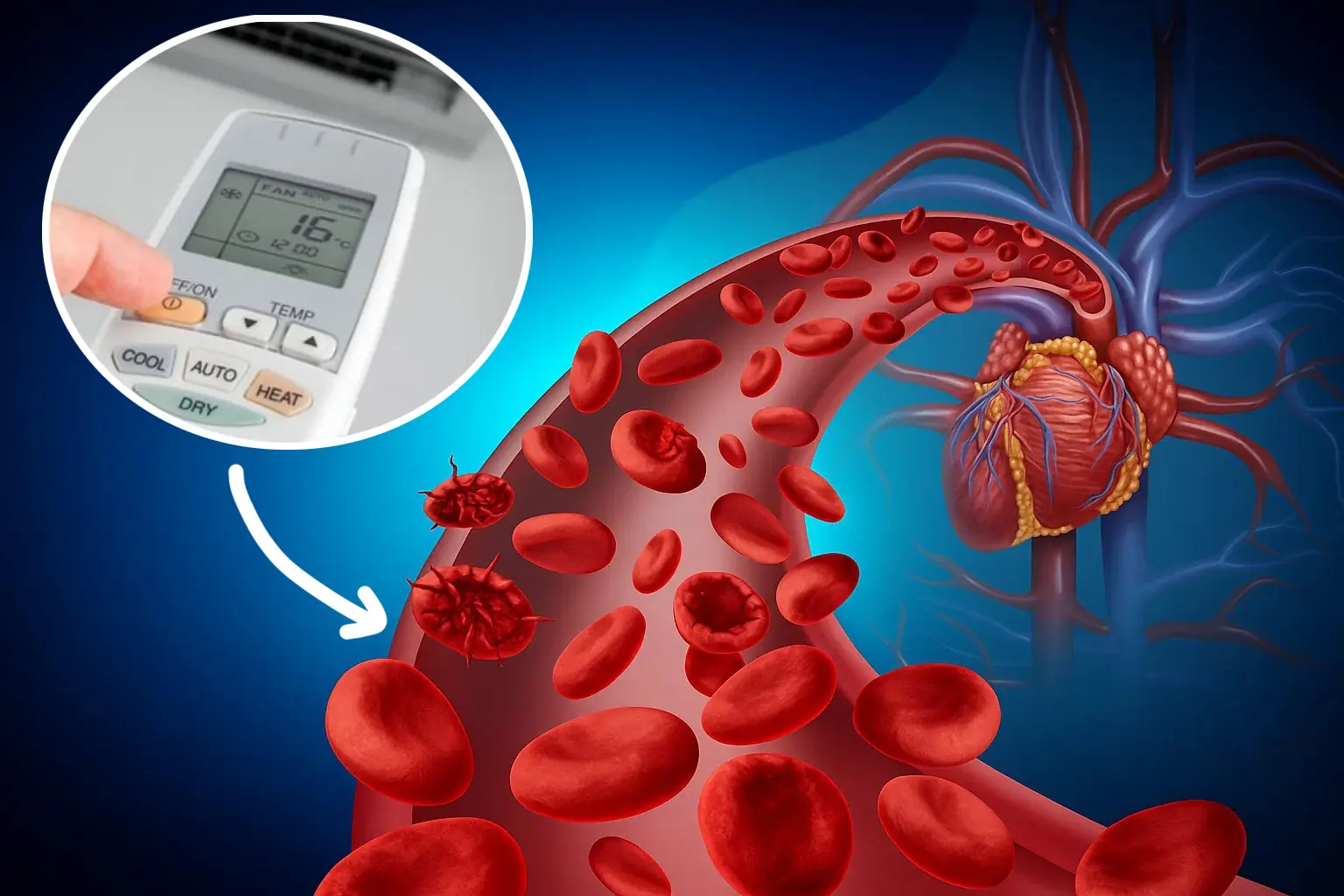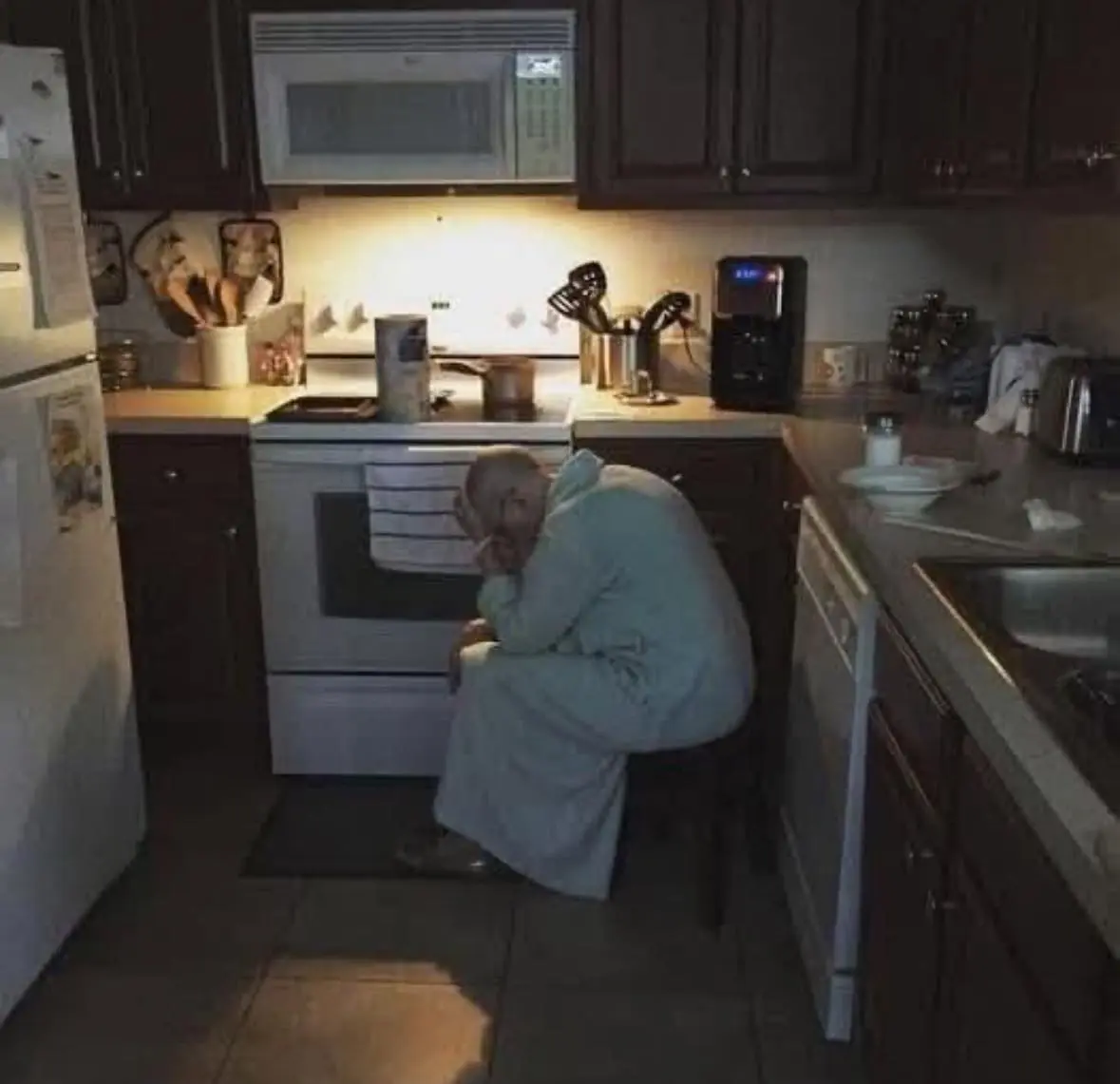
Silent Signals: Subtle Signs of Kidney C@ncer You Shouldn't Ignore
Kidney cancer, particularly renal cell carcinoma, is a silent threat that often progresses without noticeable symptoms in its early stages. By the time symptoms become evident, the disease may be advanced, making early detection crucial for effective treatment.
Key Symptoms to Watch For
-
Hematuria (Blood in Urine): One of the most common signs, hematuria can cause the urine to appear pink, red, or cola-colored. In some cases, blood in the urine is microscopic and can only be detected through laboratory tests.
-
Persistent Back or Side Pain: A dull ache or pain in the back or side, especially on one side, may be indicative of a growing tumor pressing against surrounding tissues. This pain is often mistaken for muscle strain or other musculoskeletal issues.
-
Fatigue: Unexplained fatigue or a general feeling of being unwell, even with adequate rest, can be a symptom of kidney cancer. This may result from anemia or other systemic effects of the disease.
-
Unexplained Weight Loss: Significant weight loss without changes in diet or exercise habits can be a concerning sign, as the body may be using more energy to fight the cancer.
-
Loss of Appetite and Nausea: As the cancer affects kidney function, it can lead to a buildup of toxins in the body, causing nausea and a decreased appetite.
-
Swelling in the Ankles or Legs: Fluid retention due to kidney dysfunction can lead to swelling in the lower extremities.
-
High Blood Pressure: Kidney tumors can produce hormones that increase blood pressure, leading to hypertension.
-
Electrolyte Imbalances: Disruptions in the balance of minerals like calcium and sodium can cause symptoms such as dizziness, rapid heartbeat, and confusion.
Advanced Symptoms
If kidney cancer spreads (metastasizes), it can affect other organs, leading to additional symptoms:
-
Persistent Cough or Shortness of Breath: Indicates potential spread to the lungs.
-
Bone Pain or Fractures: Suggests metastasis to the bones.
-
Neurological Symptoms: Such as headaches or seizures, may indicate spread to the brain.
Risk Factors
Certain factors can increase the likelihood of developing kidney cancer:
-
Smoking: Tobacco use is a significant risk factor.
-
Obesity: Excess body weight is linked to higher risk.
-
Hypertension: High blood pressure can contribute to kidney damage.
-
Family History: A family history of kidney cancer increases risk.
-
Exposure to Certain Chemicals: Occupational exposure to substances like asbestos or cadmium.
Diagnosis and Treatment
Early detection is vital for successful treatment. Diagnostic methods include:
-
Imaging Tests: Such as ultrasound, CT scans, or MRIs to visualize kidney abnormalities.
-
Biopsy: Taking a tissue sample to confirm cancer presence.
-
Blood and Urine Tests: To assess kidney function and detect abnormalities.
Treatment options vary based on the cancer's stage and may include:
-
Surgical Removal: Partial or complete removal of the affected kidney.
-
Targeted Therapy: Medications that target specific cancer cells.
-
Immunotherapy: Boosting the body's immune system to fight cancer.
-
Radiation Therapy: Using high-energy rays to kill cancer cells.
Conclusion
Kidney cancer often presents subtle symptoms that can be easily overlooked. Being aware of these signs and seeking timely medical attention can significantly improve outcomes. Regular check-ups and screenings are essential, especially for those with risk factors, to detect kidney cancer in its early, more treatable stages.
News in the same category


An unusual abdominal sign warns of severe fa:tty l!ver: If you see it, get checked immediately.
A gastroenterologist has suggested how to recognize fatty liver disease from an unusual sign in the abdomen.

A 33-year-old woman with metastatic canc3r is healthy 3 years later thanks to consistently doing one thing: "If I'd waited longer, things would be different."
Stunned after receiving the health check results, the 33-year-old woman still felt fortunate because she had detected the dangerous disease in time and still had a chance for treatment.

Don't buy these 3 kinds of oysters; even seafood shop owners won't let their families consume them.
If you want to buy good and clean oysters to eat, you must immediately avoid these types.

Straight vs. curved cucumbers: Which tastes better? My mother, with 40 years of farming experience, shares 3 key secrets.
The 'beautiful' things may have deceived you!

Beyond superstition: 5 items placed at your bedside secretly "drain" your health, leaving you more tired the more you sleep.
Green pots, plush bears, and small decorative items are all commonly seen objects in the bedrooms of many families. However, they can completely affect your health.

Is showering 2-3 times a day good in hot weather? Doctors warn certain bathing habits increase stroke risk.
In hot weather, many people have the habit of showering 2-3 times a day to cool down their bodies. However, is this habit good for health?

A 22-year-old man developed k!dney failure, fa:tty l!ver, and gout simultaneously, regretting drinking one type of beverage for four years.
A 22-year-old young man named Wang Yi, from Taiwan (China), went for a check-up and was unexpectedly diagnosed with kidney failure, fatty liver disease, and gout.

Eating too much of these 5 vegetables is like "poisoning" your liver, and the first one is on almost every family's dinner table.
The liver is an important detoxifying organ of the body. However, some familiar vegetables in daily meals can become silent 'enemies,' harming the liver if not used properly.

Woman suffers severe consequences after using bee stings to treat breast canc3r
Having breast cancer but not going to the hospital for treatment, instead opting for honeybee stings at home, the woman in Ho Chi Minh City has to bear the heavy consequences as the tumor complicates and metastasizes to many places.

Everyone knows canc3r can be hereditary, but which types of cancer have a higher risk?
Some hereditary cancers related to genetic mutations, such as breast cancer, ovarian cancer, and prostate cancer, can be managed and screened early thanks to genetic counseling.

Prolonged "minor ailments" could indicate canc3r, so beware of these 7 signs.
If you continuously experience headaches, loss of appetite, dry cough, and continuous weight loss... you need to see a doctor immediately as this could be a sign of cancer.

8 types of fruit that contain a lot of sugar should be limited to reduce the risk of diabetes and protect health
Fruit is good for you, but certain kinds contain a lot of sugar. Overeating can impact your health by raising blood sugar levels.

Hidden St0mach Canc3r Risk: How H. Pylori Infection Can Lead to Silent Canc3r and What You Need to Know
Learn about the link between Helicobacter pylori infection and stomach canc3r. Discover how this common food and waterborne bacteria could lead to silent canc3r and how early detection and treatment can help prevent it.

5 Simple Habits to Slash Heart Att@ck and Stroke Risks - Experts Reveal the Secrets
Discover 5 easy daily habits that can significantly reduce the risk of heart attack and stroke. From exercise to diet, learn how small lifestyle changes can protect your heart and improve overall health.

4 Visible Signs of Fatty Liver Dise@se on Your Face and How to Recognize Them
Discover the 4 common facial signs of fatty liver disease (NAFLD) like puffiness, skin discoloration, and acne. Learn how liver health affects your skin and when to seek medical help.

Vitamin D Can Reduce Tooth Decay by 50%, Study Finds: A Natural Solution to Dental Health
Discover how vitamin D can reduce tooth decay by 50%. Learn about its role in preventing dental caries, the link between vitamin D and oral health, and more in this detailed guide.

3 habits that "destroy blood vessels" faster than eating fatty meat: Many people still do them carelessly every summer
There are other causes of "damaging blood vessels" besides eating a lot of fatty meat and fatty foods. Three frequent summertime activities can also damage blood vessels, according to physicians.

Top 3 Seeds and 3 Drinks to Reduce Bloating, According to a Renowned Gastroenterologist
Discover the top seeds and drinks recommended by Dr. Saurabh Sethi to reduce bloating. Learn about sesame, flax, chia seeds, and drinks like ginger tea, kefir, and more.

There's a secret on b33r bottle caps: Target this point to open them easily by hand.
Many people have used their teeth, the edge of a table, or the armrest of a chair to open beer bottle caps – both dangerous and likely to cause damage. In fact, there is a special 'weak point' on beer bottle caps. Just aim correctly at this spot, and yo
News Post

When washing dishes, follow this method to remove all chemicals: Don't rush and risk "eating" detergent.

An unusual abdominal sign warns of severe fa:tty l!ver: If you see it, get checked immediately.
A gastroenterologist has suggested how to recognize fatty liver disease from an unusual sign in the abdomen.

A 33-year-old woman with metastatic canc3r is healthy 3 years later thanks to consistently doing one thing: "If I'd waited longer, things would be different."
Stunned after receiving the health check results, the 33-year-old woman still felt fortunate because she had detected the dangerous disease in time and still had a chance for treatment.

Don't buy these 3 kinds of oysters; even seafood shop owners won't let their families consume them.
If you want to buy good and clean oysters to eat, you must immediately avoid these types.

Straight vs. curved cucumbers: Which tastes better? My mother, with 40 years of farming experience, shares 3 key secrets.
The 'beautiful' things may have deceived you!

Beyond superstition: 5 items placed at your bedside secretly "drain" your health, leaving you more tired the more you sleep.
Green pots, plush bears, and small decorative items are all commonly seen objects in the bedrooms of many families. However, they can completely affect your health.

Is showering 2-3 times a day good in hot weather? Doctors warn certain bathing habits increase stroke risk.
In hot weather, many people have the habit of showering 2-3 times a day to cool down their bodies. However, is this habit good for health?

A 22-year-old man developed k!dney failure, fa:tty l!ver, and gout simultaneously, regretting drinking one type of beverage for four years.
A 22-year-old young man named Wang Yi, from Taiwan (China), went for a check-up and was unexpectedly diagnosed with kidney failure, fatty liver disease, and gout.

2-Step Korean-Inspired Glowup Routine: Achieve Radiant, Youthful Glass Skin At Home
The combination of rice, flaxseed, and other nourishing ingredients offers numerous benefits, from boosting hydration to fighting free radicals and improving skin texture. Follow this routine consistently, and you’ll be on your way to achieving the cove

Eating too much of these 5 vegetables is like "poisoning" your liver, and the first one is on almost every family's dinner table.
The liver is an important detoxifying organ of the body. However, some familiar vegetables in daily meals can become silent 'enemies,' harming the liver if not used properly.

The Legacy of Ruby Middleton Forsythe: A Lifelong Advocate for Education and Civil Rights
Discover the inspiring life of Ruby Middleton Forsythe, a dedicated educator who shaped the future of African-American children in South Carolina, teaching for over six decades despite adversity.

A 14-Year-Old’s Work Ethic: How One Young Girl’s Determination is Shaping Her Future
Discover the inspiring story of a 14-year-old girl who took the initiative to get a job, worked hard, and is saving for her future. Learn how determination and responsibility are shaping her dream to become a doctor.

Woman suffers severe consequences after using bee stings to treat breast canc3r
Having breast cancer but not going to the hospital for treatment, instead opting for honeybee stings at home, the woman in Ho Chi Minh City has to bear the heavy consequences as the tumor complicates and metastasizes to many places.

Mid-Flight Miracle: How a WestJet Flight Attendant Became a Baby-Whispering Hero
A family's challenging flight with a crying 4-month-old was transformed by the extraordinary kindness of a WestJet flight attendant. Discover this heartwarming story of empathy and going above and beyond in customer service.

Quiet Strength and Southern Grace: The Unseen Heroism of a Mother-in-Law Named Sharon
Discover the powerful story of Sharon, a mother-in-law whose quiet resilience and unwavering love carried her family through cancer, caregiving, and grace under pressure.

The Wisdom of Experience: How a $10 Withdrawal Taught a Bank Teller a Priceless Lesson
An elderly customer's request for a $10 withdrawal led to a viral moment of hidden wisdom. This compelling story reveals how patience and respect for elders can transform interactions, offering a powerful lesson in customer service and human dignity.

DIY Flaxseed Gel & Okra Hair Gel for Natural Hair Growth and Frizz-Free Shine
By incorporating these DIY treatments into your routine, you can achieve healthier, shinier, and fuller hair—without relying on harsh chemicals or expensive products.

Everyone knows canc3r can be hereditary, but which types of cancer have a higher risk?
Some hereditary cancers related to genetic mutations, such as breast cancer, ovarian cancer, and prostate cancer, can be managed and screened early thanks to genetic counseling.

Katherine Swynford: From Mistress to Duchess and the Legacy of Love and Power
Discover the extraordinary life of Katherine Swynford, from a lady-in-waiting to a duchess, her deep love story with John of Gaunt, and the lasting impact of her children, the Beauforts, on English history.

Prolonged "minor ailments" could indicate canc3r, so beware of these 7 signs.
If you continuously experience headaches, loss of appetite, dry cough, and continuous weight loss... you need to see a doctor immediately as this could be a sign of cancer.